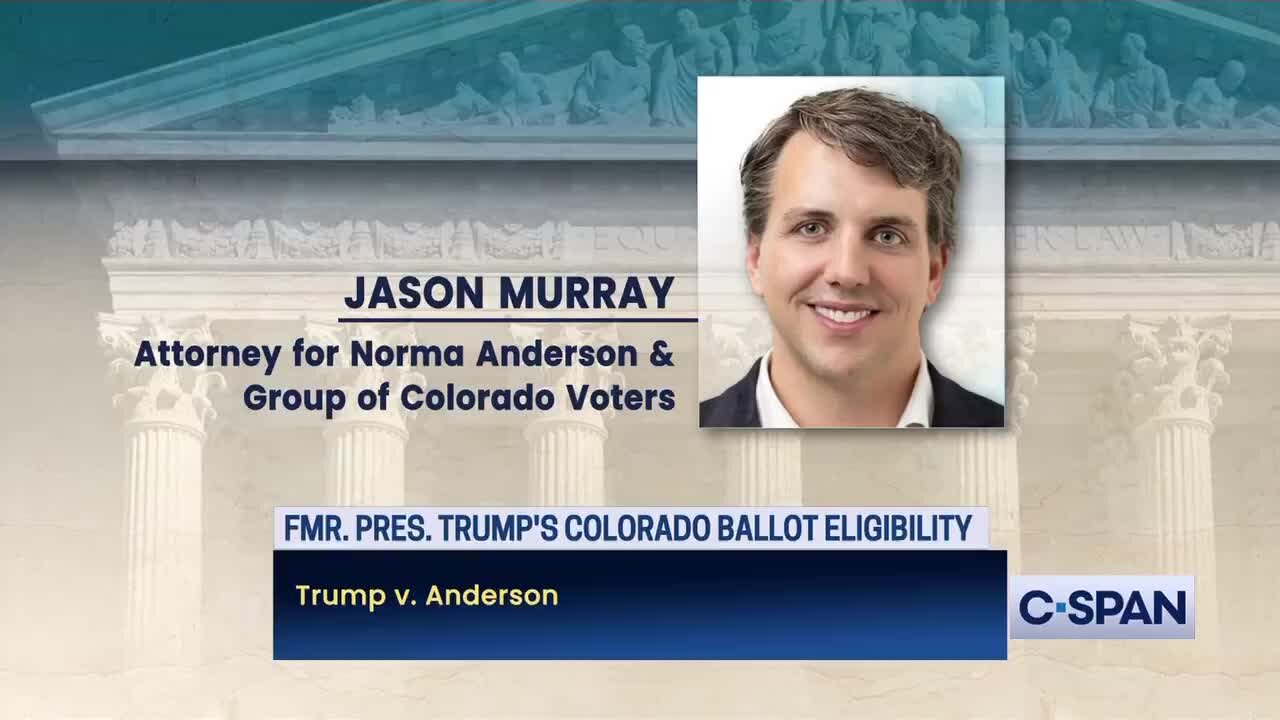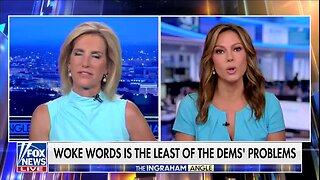Premium Only Content

Justices Ask if Military Officers Could Refuse Orders from a President Who Engaged in Insurrection
Alito: “Can I ask you again the question that Justice Gorsuch asked and you — to which you responded by citing the de facto officer doctrine. But suppose we look at that going forward rather than judging the validity of an act committed between the time when a president allegedly engages in an insurrection on the time when the president leaves office. During that interim period would it be lawful for military commanders and other officers to disobey orders of the — of the — the president in question?”
MURRAY: “I’m not sure that anything gives military officers the authority to adjudicate effectively the legality of the presidency.”
Alito: “Why not?”
Gorsuch: “Because — you say he’s disqualified from the moment it happens. Now I understand the de facto officer doctrine might be used to prohibit people from seeking judicial remedies for decisions that take place after the date he was disqualified. But if he’s in fact disqualified from that moment, why would anybody have to obey a direction from him?”
MURRAY: “Well, ultimately, there still has to be some kind of procedure in place to adjudicate the disqualification. Certainly Congress could impeach a sitting president. But that’s the only remedy I’m aware of that exists for removal or otherwise negating the authority of a sitting president.”
Gorsuch: “Why? On what theory? Because the Section 3 speaks about disqualification from holding office, you say he is disqualified from holding office from the moment it happens.”
MURRAY: “Correct. But nevertheless —“
Gorsuch: “So, it operates you say there’s no — no legislation necessary. I thought that was the whole theory of your case, and no procedure, it happens automatically?”
MURRAY: “Well, certainly you need a procedure in order to have any remedy to enforce the disqualification, which —“ [crosstalk]
Gorsuch: “That’s a whole separate question. That’s the de facto doctrine, that doesn’t work here, OK? Put that aside. He’s disqualified from the moment. Self-executing. Done. And I would think that a person who would receive a direction from that president, former president, in your view, would be free to act as he or she wishes without regard to that individual.”
MURRAY: “I don’t think so. Because I think again —“
Gorsuch: “Why?”
MURRAY: “— the de facto officer doctrine would nevertheless come into play to say this is —“
Gorsuch: “No de facto — that — that doesn’t work, Mr. Murray, because the facto officers to ratify the conduct that’s done afterwards, and insulated from judicial review. Put that aside, I’m going to say it again, put it aside. OK. I think Justice Alito has asked you a very different question, the more pointed one, and more difficult one for you. I understand. But I think he deserves an answer. On your theory, would anything compel a lower official to obey an order from, in your view, the former president?”
MURRAY: “I’m imagining a situation where, for example, a former president was — you know, a president was elected and they were 25 and they were ineligible to hold office, but nevertheless they were appointed to that office.” [crosstalk]
Gorsuch: “No. No. No. No. We’re talking about Section 3, please don’t change the hypothetical, OK? Please don’t change the hypothetical. I know, I like doing it too. But please don’t do it, OK?”
MURRAY: “Well, the point I’m trying to make is —“
Gorsuch: “he’s disqualified from the moment he committed an insurrection, whoever it is, whichever party, that happens. Boom. It happened. What would compel, I’m not going to say it again, so just try and answer the question. If you don’t have an answer, fair enough, we’ll move on. What would compel a lower official to obey an order from that individual?”
MURRAY: “Because ultimately, we have — we have statutes and rules requiring chains of command. The person is in the office, and even if they don’t have the authority to hold the office, the only way to get someone out of the office of the presidency is impeachment. And so I think if you interpreted Section 3 in light of other provisions in the Constitution, like impeachment, while they hold office, impeachment is the only way to validate that they don’t have the ability to hold that office and should be removed.”
-
 1:21
1:21
Grabien
3 hours agoLisa Boothe: Trump Broke the Dem Party, They’re Facing This Identity Crisis, We’re Seeing Them Suffering Through
6 -
 LIVE
LIVE
Michael Franzese
11 hours agoMenendez Brothers Denied Parole – Newsom Holds Their Fate
5,747 watching -
 LIVE
LIVE
I_Came_With_Fire_Podcast
10 hours agoSecret Origins of Transhumanism & The New Atlantis
147 watching -
 LIVE
LIVE
GritsGG
1 day ago36 Hour Stream! Most Wins 3420+ 🧠
2,583 watching -
 1:12:40
1:12:40
Wendy Bell Radio
7 hours agoPet Talk With The Pet Doc
21.2K24 -
 LIVE
LIVE
FusedAegisTV
11 hours agoStreet Fighter 6 FINALS, CS2 Semifinals | $1,250,000 | Riyadh, Saudi Arabia EWC 2025 !estv
128 watching -
 40:42
40:42
SouthernbelleReacts
1 day ago $0.02 earned😂 American Pie (1999) Reaction | Iconic Teen Comedy, High School Chaos & 90s Nostalgia 🥧
7.84K1 -
 LIVE
LIVE
LumpyPotatoX2
1 hour agoBecome a HellDiver Today - #RumbleGaming
113 watching -
 LIVE
LIVE
Midnight In The Mountains
3 hours agoGaming w/ PER·SE·VER·ANCE | Sassy Saturday Fortnite | with the Midnights!
55 watching -
 LIVE
LIVE
shyboyking
1 hour agoThe Bots Of The Bots !!!😎
69 watching